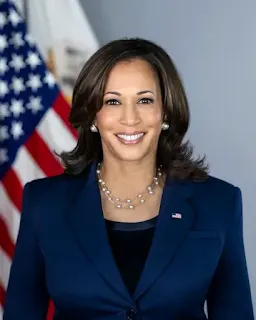Trump’s Win: Economic Growth, Deregulation, and Inflation Concerns
If Trump wins, his policies may prioritize economic growth through lower taxes, deregulation, and aggressive fiscal spending. Historically, these measures spur short-term market growth but often lead to increased inflation due to high government expenditure and minimal constraints on monetary policy. Trump’s emphasis on business incentives could lead to higher spending without corresponding revenue, amplifying inflation risks, especially if fiscal and monetary policies remain expansionary.
Inflation Impact
A Trump administration might take a pro-growth stance that brings heightened inflation risks. If federal spending and loose regulations persist without counteracting interest rate hikes, inflation could become entrenched. The Federal Reserve might be pressured to raise rates, which could either stabilize inflation or create uncertainty, depending on the economic response.
Crypto Market Impact
Trump’s approach may benefit the crypto market, especially Bitcoin. His often critical view of centralized financial controls suggests he might lean towards policies that indirectly support decentralized finance. Lower regulatory scrutiny under his administration could attract more speculative interest in crypto as both a high-growth asset and a hedge against inflation. However, if inflation rises, interest in Bitcoin as an inflation hedge might further accelerate, driving up demand in response to a weakened dollar.
Harris’s Win: Regulatory Control, Inflation Stabilization, and Crypto Legitimacy
If Harris wins, her administration would likely prioritize tighter fiscal controls and inflation containment measures. Her policies might include spending cuts, incentives for saving, and possibly a more aggressive stance on stabilizing prices. A Harris-led administration would likely back the Federal Reserve’s efforts to control inflation, favoring policies that could reduce inflation over the medium to long term.
Inflation Impact
Harris’s policies might focus on inflation reduction through strict monetary policies and careful fiscal spending. This approach would target stabilizing the economy by avoiding inflationary government spending. With the dollar’s value preserved under her administration, demand for riskier assets as inflation hedges, like crypto, might diminish.
Crypto Market Impact
With Harris, cryptocurrency could face stricter regulation. Her administration’s focus on financial regulation could mean more rigorous requirements for crypto exchanges and oversight on decentralized finance. However, such regulation could increase the legitimacy of Bitcoin and other cryptocurrencies in the eyes of institutional investors. If clear regulatory frameworks emerge, they could attract conservative investors looking for stability in a compliant environment, while reducing speculative market volatility.
Potential Market and Crypto Scenarios for 2024
Depending on the election outcome, Bitcoin and other cryptocurrencies may experience vastly different conditions. Here’s a breakdown of the likely scenarios:
1. Pro-Growth, High-Inflation Environment (Trump)
A Trump administration focused on economic expansion with limited regulation might drive traditional market growth initially, but the effects could weaken the dollar if inflation rises. In this context, Bitcoin may attract more attention as a hedge against inflation and currency devaluation, potentially leading to price increases. Institutional interest may also increase due to low barriers and favorable policies.
2. Stabilized, Low-Inflation Environment (Harris)
Under Harris, inflation control and regulation could stabilize traditional markets and reduce the speculative appeal of Bitcoin. However, structured regulations could create an environment where institutional investors feel safer entering the crypto market. Lower inflation and tighter fiscal policies may reduce Bitcoin's short-term appeal as a hedge but could add legitimacy, encouraging longer-term investment by institutions and risk-averse investors.
3. Uncertain Economic Signals and Mixed Regulatory Landscape
Regardless of the winner, both candidates will face unprecedented economic and financial complexities. Should there be regulatory inconsistencies or unforeseen economic events, Bitcoin could see high volatility. An uncertain economy might push conservative investors towards safer assets, while others might view Bitcoin as a decentralized option in times of government-induced instability.
Strategic Takeaways for Bitcoin Investors
In 2024, Bitcoin’s trajectory will hinge on election outcomes and subsequent economic policies. With Trump, inflationary conditions could drive Bitcoin’s role as a hedge, though volatility may increase. Under Harris, regulation could bring legitimacy but reduce speculative interest. For investors, keeping a close watch on inflation reports, regulatory changes, and Federal Reserve signals will be crucial as these factors will shape Bitcoin’s status in an evolving economic landscape.
Ultimately, both inflation and regulation will be pivotal in determining Bitcoin’s appeal as a mainstream or alternative asset. As 2024 unfolds, Bitcoin investors should be ready to adapt strategies based on how economic and regulatory landscapes evolve under either administration.


Comments
Post a Comment